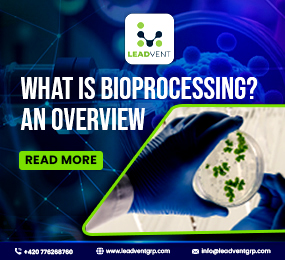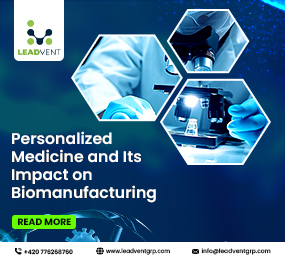Amidst the digitalisation all around, the industries are getting reshaped, and they are moving towards complete automation. However, to keep pace with the external environment, the field of biomanufacturing is also undergoing digital transformation. As the demand for biologics and personalised medicine grows, bio manufacturers are increasingly switching to digital technologies to enhance efficiency, improve quality, and streamline operations.
Digital transformation in biomanufacturing encompasses a wide array of technologies and methodologies aimed at optimising production processes, improving product quality, and ensuring compliance with stringent regulatory standards. The World Biomanufacturing Forum 2024 in the present state is an ideal platform that is going to incite the significant exchange of knowledge among the industry policymakers, researchers, and pharmacists. This blog seeks to explore the key aspects of digital transformation in biomanufacturing, highlighting its benefits, challenges, and future directions.
The Importance of Digital Transformation in the Biomanufacturing Sector
The biomanufacturing sector generates an immense volume of data throughout the production process, from research and development to quality control. However, much of this data remains underutilised due to fragmented systems and outdated practices. Traditional paper-based methods hinder effective data management, making it difficult for organisations to gain insights that could drive operational improvements. To address these challenges, bio manufacturers are embracing digital transformation as a means to optimise their processes and harness the full potential of their data.
The impact of digital transformation on biomanufacturing
When it comes to biotechnology, especially the production of life-saving medicines, digital intervention is essential as it has a myriad of benefits. As the biopharmaceutical industry is encountering serious challenges, it is becoming absolutely mandatory to combine the digital technologies in the production process to ascertain compliance with the regulatory frameworks and at the same time to maintain the competitiveness in the market.
Accelerated Adoption of Digital Technologies
Although the biopharmaceutical sector is too slow to adapt with the digital technologies, the emergence of COVID-19 has necessitated this industry as well to embrace the digitalisation for the unhindered business operation. A Deloitte survey indicated that over a third of biopharma leaders now weaponise cloud computing (49%), AI (38%), and data lakes (33%) in their daily operations. This shift in reality is encouraging the companies to enhance the overall degree of efficiency.
Improved Flexibility and Agility
Digital tools and technologies are known for increasing the degree of flexibility in biomanufacturing and that lead to coping with the altering demands of the market. This level of agility in reality is beneficial for compliance with the regulatory standards and the new market conditions. Digital transformation in the current context is contributing to the actionable insights that are derived directly from machine intelligence.
Cultural and strategic shifts
Successful digital transformation requires not just technological upgrades but also cultural changes within organizations. Companies must foster a mindset that embraces innovation and adaptability among their workforce. In addition to that, upskilling of the employees assists in navigating new technologies. However, it is enabling the biopharma professionals to collaborate with the IT professionals to keep pace with the digital transformation.
Enhanced Data Management and Utilisation
Biomanufacturing generates vast amounts of data throughout its processes. Traditional methods often resulted in siloed data that was underutilised, limiting insights and efficiency. Digital transformation endorses the integration of disparate data sources into cohesive systems that facilitate real-time analytics and decision-making.
Future scopes
Digital transformation is not the only reality in the sphere of bioprocessing; rather, it also allows this industry to come up with more improvement. On the other hand, advanced data analytics tools will enable manufacturers to monitor processes continuously, identify trends, and respond swiftly to deviations. This capability in the future will not only optimise the product quality but also increase the degree of compliance by maintaining transparent documentation throughout.
Case Studies
BioPhorum: Digital Plant Maturity Model
BioPhorum has developed the digital plant maturity model with the purpose solely helping the companies in assessing their existing capabilities and to accordingly indulge in the process of identification of the areas of improvement. This model, in reality, is absolutely a game changer and allows the companies to invest in digital technologies strategically. When it comes to evaluation of an organisation’s digital maturity, there can be no alternative to the DPM model.
Genentech: Real-Time Data Analytics
Genentech has implemented advanced analytics tools across its biomanufacturing operations to enhance decision-making processes. This strategic move is helping the companies to get a clear insight about the process performance and proactive adjustment. This integration of real-time analytics has led to significant improvements in productivity and compliance with regulatory standards.
FAQs
1) How does digital transformation improve regulatory compliance in biomanufacturing?
Digital tools via data management and traceability are making it easier for the companies to identify the regulatory laws and their nature. In turn, through transparent reporting and documentation, these organisations are complying with the regulations.
2) What is the future outlook for digital transformation in biomanufacturing?
The future of digital transformation in biomanufacturing includes greater automation, enhanced interconnectivity among stakeholders, The future of digital transformation in biomanufacturing includes greater automation, enhanced interconnectivity among stakeholders, and others.
3)What technologies are commonly used in digital biomanufacturing?
Technologies like data analysis software, process analytical technology, digital twins, and so on are commonly used technologies in the sphere of biomanufacturing.
Closing Thoughts
The digital transformation in the coming days is expected to shape the trajectory of bioprocessing in a positive manner and, at the same time, will pave a path for a new tomorrow. As these transformations unfold, they will not only redefine manufacturing practices but also enhance patient access to innovative therapies globally. To gather more insights on digital transformation in the bioprocessing sector, join the World Biomanufacturing Forum 2024 and get in touch with Leadvent Group to register now.














